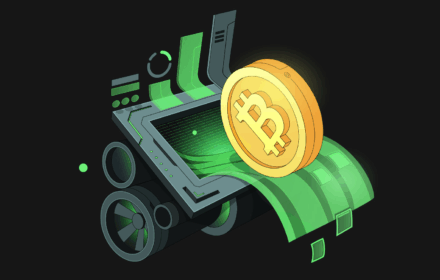
Cryptocurrency wallets play a key role in managing your digital assets
Read more
At first glance, the year 2025 looks like a technical pause in the history of the crypto market — regulators are writing rules, institutions are adapting, volatility is decreasing. But beneath the surface lies a fundamental shift: crypto is transforming from a speculative tool into insurance against systemic risks in the traditional economy. The question …

The question “what is FOMO in cryptocurrencies” regularly arises at any stage of investing. The term describes a state in which the market dictates decisions more strongly than rational analysis. Price spikes create a feeling that the price is about to take off without capital participation. This emotional impulse triggers decisions based not on strategy, …

The cryptocurrency market crash has turned the digital market from a arena of euphoria into a field of cold calculation. The price drop boldly shattered illusions of unlimited growth and forced participants to rethink their strategies. Panic on exchanges, liquidity spikes, and wiping out leveraged positions revealed the true volatility of the sector. The market …

2025 год открывает новый этап развития крипторынка. Традиционные спотовые сделки дополняются фьючерсами, стейкингом, интеграцией Web3 и NFT-системами. Выбор биржи теперь — не просто анализ комиссий и скорости исполнения ордеров. Рынок оценивает, насколько платформа способна сочетать высокую ликвидность, безопасность и инновационные возможности. Рейтинг лучших криптобирж 2025 года отражает баланс: от крупнейших игроков до нишевых площадок с …

Безопасное хранение криптовалют в 2025 году требует внимания, поскольку масштабы рынка выросли, а злоумышленники используют сложные техники социальной инженерии и целевые атаки. Инвестор, управляющий портфелем от нескольких сотен долларов до миллионов, столкнётся с одними и теми же базовыми угрозами: кража приватных ключей, фишинг, компрометация устройств и ошибки в резервном копировании. Правильная архитектура хранения решает эти …
Cryptocurrency wallets offer a high level of security through the use of encryption and multiple layers of protection
Storing digital assets requires reliable solutions that protect your funds. Thanks to advanced technologies
For secure management of cryptocurrencies, multi-level protection is important, as well as the use of unique passwords and biometric authentication
Modern technologies enable the creation of convenient and secure digital asset platforms and monitoring systems
Revealing the world of cryptocurrencies: the dynamic, innovative and opportunity-filled financial landscape of the future, we see how new technologies are transforming traditional financial systems, creating unique opportunities for investment, business and interpersonal payments
